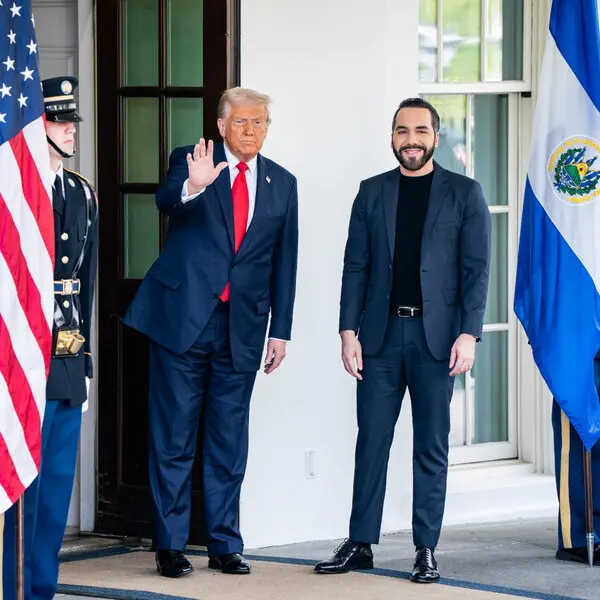
This week, a diplomatic standoff erupted after El Salvador’s President Nayib Bukele flatly refused to return Kilmar Abrego Garcia, a man the U.S. Supreme Court ruled was illegally deported due to an administrative error.
Sitting beside President Trump in the Oval Office, Bukele mocked the idea of returning Abrego Garcia: “How can I return him? Smuggle him back in?” He added pointedly, “We’re not very fond of releasing terrorists.”
Yet, Abrego Garcia has no criminal record in the U.S. or El Salvador, and the terrorism label stems from a vague, uncorroborated claim linking him to MS-13—a gang the Trump administration has targeted through a controversial $6 million deal with El Salvador to imprison suspected members.
The U.S. Supreme Court ruled that Garcia’s deportation violated an existing court order and called for his return. Still, administration officials like Stephen Miller deny it was a mistake, claiming, “He was sent to the right place.”
But behind this legal and diplomatic mess lies a much larger issue: America is distracted, divided, and weakened by internal dysfunction and political chaos—and hostile foreign powers are watching closely, especially China.
This isn’t just about one man. It’s about how the U.S. system—built on rule of law and constitutional checks—is being eroded by political agendas and foreign policy made ad hoc in Oval Office photo ops.
Unlike El Salvador, China isn’t loud about challenging U.S. sovereignty. It does so systematically, silently, and strategically. While Washington debates deportation policy and fumbles court orders, Beijing:
Beijing doesn't need to send agents through the southern border—it sends apps like TikTok, drones, and chips into U.S. homes and institutions.
America’s domestic dysfunction is China’s opportunity.
This week’s story should raise alarm not just about judicial defiance or immigration overreach—but about the fragility of American systems and how quickly they can be bypassed.
While El Salvador draws headlines, China is steadily expanding its footprint inside our borders, without cameras or press briefings. Their goal is clear: undermine trust, sow division, and erode American sovereignty from within.
If the U.S. government can’t enforce its own court orders or secure due process for its residents, how can it credibly defend against a disciplined, authoritarian rival like the Chinese Communist Party?
Congress must demand transparency: The State Department and DHS must report publicly on what efforts, if any, are being made to return Abrego Garcia as the Supreme Court ordered.
The judiciary must assert its authority: If court orders are ignored today, they can be ignored again tomorrow—whether it’s immigration, civil rights, or national security.
America must realign its focus: Internal political battles are blinding the nation to China’s aggressive push into U.S. society, commerce, and technology.
The public must wake up: From TikTok to farmland to chip factories, China is not just overseas—it’s here. And it's advancing while Americans are distracted by infighting.
The Abrego Garcia case isn’t just about one man. It’s about a government that appears increasingly unable—or unwilling—to follow its own laws. That failure, combined with deepening political polarization, is exactly what China counts on.
El Salvador may be defying the United States out loud. But China is dismantling it in silence.